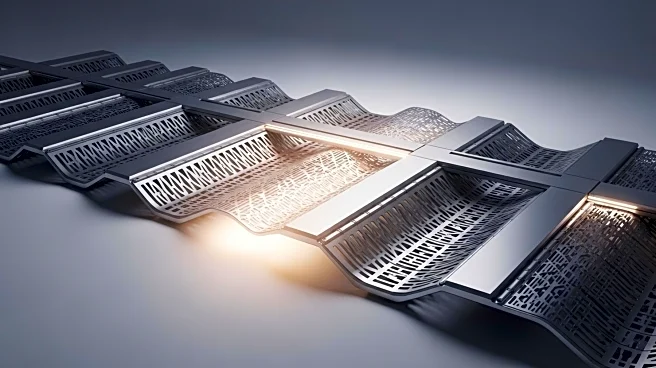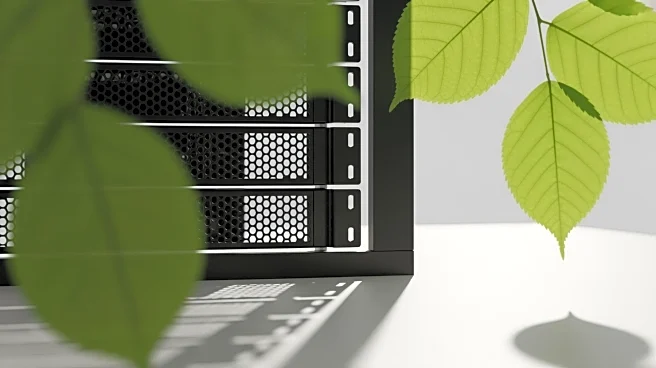What is the story about?
What's Happening?
A recent study published in Nature Communications has unveiled a lithium-selective thin film nanocomposite cation exchange membrane (TFN-CEM) designed to enhance lithium extraction from brine sources. This innovative technology aims to improve the efficiency and selectivity of lithium recovery, addressing the increasing global demand for lithium in energy storage and electric vehicle applications. The TFN-CEM represents a significant advancement in membrane technology, offering a scalable solution for sustainable lithium production. Traditional lithium extraction methods, which rely on evaporation ponds, are resource-intensive and environmentally harmful. The TFN-CEM, incorporating nanosized monoclinic β-Li2TiO3 within a polymer, significantly enhances lithium selectivity and transport efficiency, marking a promising step forward in sustainable lithium extraction.
Why It's Important?
The introduction of the TFN-CEM membrane is crucial for the lithium mining industry, particularly in the extraction of lithium from geothermal brines and salt lake resources. As the demand for lithium continues to rise, driven by the growth of electric vehicles and renewable energy storage systems, advanced extraction methods like TFN-CEM are essential to meet market needs. This technology could enable more sustainable and less resource-intensive operations, improving lithium recovery rates and product purity while minimizing environmental impacts. The TFN-CEM aligns with environmental regulations by reducing water use and chemical inputs, representing a significant step toward greener and more efficient lithium extraction.
What's Next?
Future research should focus on the long-term performance of TFN-CEM in real-world mining operations, including challenges such as membrane fouling, scaling, and efficiency under different brine compositions. Exploring the integration of TFN-CEM with existing extraction systems and optimizing its fabrication and production could further enhance both efficiency and sustainability. The study highlights the potential of membrane technologies to transform lithium extraction and support more sustainable mining practices, helping meet the global demand for lithium.















